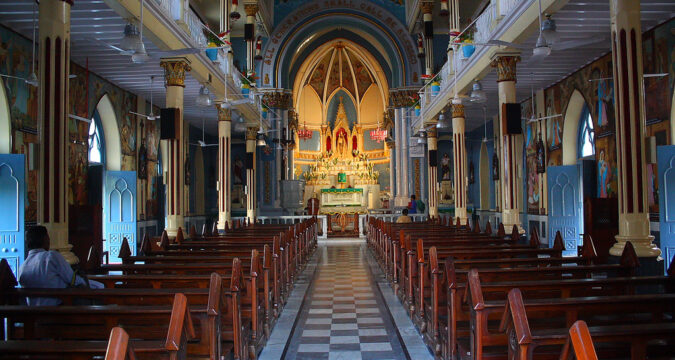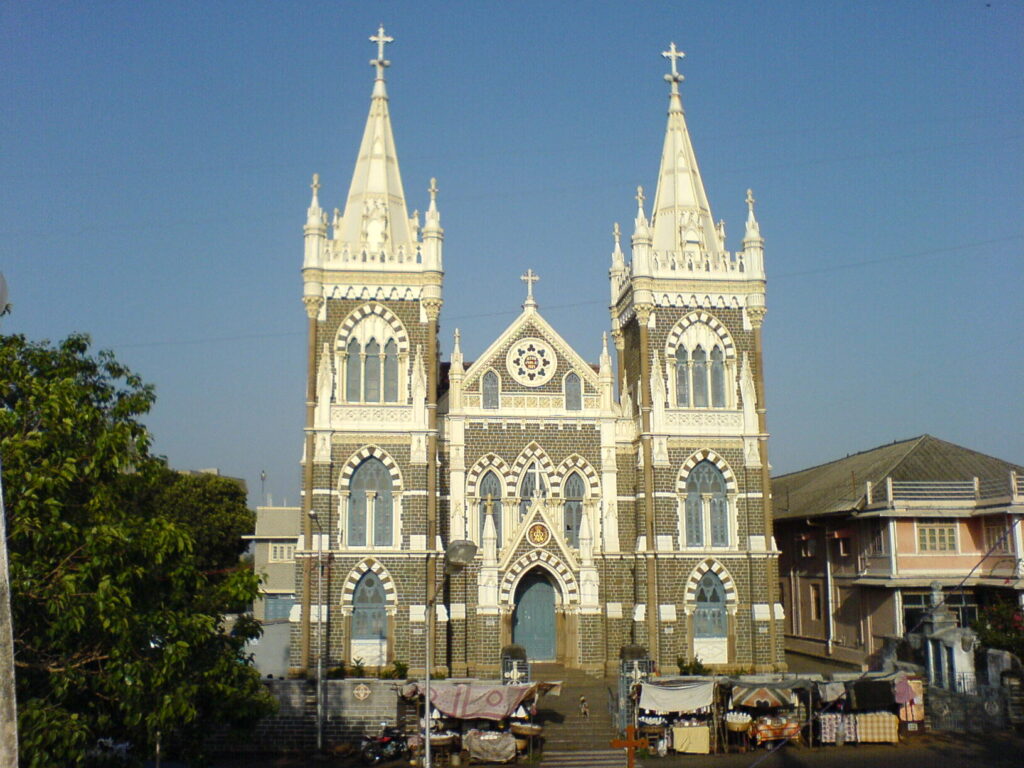
MUMBAI (UCAN): India’s Supreme Court halted a government attempt to acquire prime land owned by the Archdiocese of Bombay, Maharashta state, for the rehabilitation of slum dwellers, saying it was “against the principles of law and justice.”
Father Nigel Barretto, the spokesperson for the archdiocese said on August 30, “The Supreme Court’s order validates the Church’s position and our right to redevelop [our own land].”
The case concerns a 1,596-square-metre plot of land owned by the Basilica of Our Lady of the Mount Trust in the upmarket Bandra area in Mumbai.
For decades, the land was occupied by huts or informal settlements. In 1978, the state government declared it a slum. In 2019, slum residents sought to construct multistory apartments by demolishing the informal settlement with the assistance of a private developer.
The Church trust opposed this plan, asserting its right to redevelop the plot, which was part of a larger 10,000-square-metre plot it owned.
The Supreme Court’s order validates the Church’s position and our right to redevelop [our own land] Father Nigel Barretto
In May 2021, the trust presented its redevelopment proposal to the Maharashtra government’s Slum Rehabilitation Authority [SRA].
However, the SRA rejected it, saying it was “delayed” and not in the “prescribed format.” It also initiated the official process to acquire the land.
The trust approached the Bombay High Court, which struck down the acquisition process in June 2024, saying the Church trust’s rights had been overlooked. The slum dwellers, the private developer, and the SRA challenged the state’s court’s order in the Supreme Court.
Slum residents claimed that the Church had neglected their issues for many years and had also failed to submit an adequate plan quickly. The SRA backed up this claim.
The Church trust said its plan should not have been rejected based on technical issues, ignoring its right to redevelop the land.
The Supreme Court, in its August 22 order, said: “The owner of a slum rehabilitation area [the Church trust] has a preferential right to develop it, and without giving due opportunity to exercise that right, the State or the Slum Rehabilitation Authority cannot proceed to acquire the land.”
The owner of a slum rehabilitation area [the Church trust] has a preferential right to develop it, and without giving due opportunity to exercise that right, the State or the Slum Rehabilitation Authority cannot proceed to acquire the land
Indian Supreme Court
The top court further noted that “the SRA and private parties had acted in bad faith, and that the Church’s lawful rights could not be overridden.”
Viren Misquita, legal counsel for the Church’s trust, said that the court held that “the SRA’s rejection of the Church’s redevelopment proposal was unfair and against the principles of law and justice.”
The order “sets an important precedent against arbitrary acquisition and collusion in slum redevelopment projects,” Misquita added.
Significantly, the Supreme Court also noted that the “SRA, for reasons best known to it, exhibited a singular focus towards opposing the Church Trust’s attempts to redevelop” its own land.
The top court ordered the trust to submit its scheme for slum redevelopment within 120 days and instructed the SRA “to offer full support for conducting the surveys and demarcation” of the land.
The SRA and the state government shall process the Church trust’s proposal expeditiously within 60 days of its submission, the order said.









